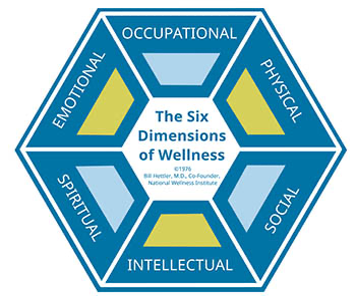Introduction
Because our world is highly reliant on technology, it seems that it is disconnected from the ideas of spiritual development learning the word of God, and adhering to His message. Nevertheless, we are all His creations, and the capability of society to facilitate technological progress in multiple realms of life is one of His gifts to humanity. Therefore, it is important that modern ministry considers such developments and integrates those spiritual formation concepts that align with the current context, including relevant social practices and trends. In this blog post, I would like to focus on discussing the ecological concepts of spiritual formation, namely, human and personal ecology. These concepts are crucial to consider when developing an innovative approach to spirituality development because they reflect the importance of connections between people as well as the connections between the spirit and the self that an individual nurtures within oneself.
Main body
In their book Ecologies of Faith in a Digital Age, Lowe and Lowe (2018) propose an ecological model of spiritual formation and development, which “takes seriously the belief that God’s involvement with human beings is not limited to the purely physical, everyday world but is also active in the digital locations we create and inhabit” (p. 222). This model is highly useful to spiritual leaders who want to foster deeper spiritual connections with other believers without the heavy reliance on physical interactions.
The concept of human ecology represents the growth of people within the context of their social connections and interactions with other developing humans. The bonds that they develop and can strengthen over time can lead to mutual growth. Lowe and Lowe (2018) referenced the influential work of Urie Bronfenbrenner and postulated the presence of the inner patterns of development that unravel mechanically. Thus, the growth of humans occurs as a result of their closer interconnections and reciprocal interactions among and between developing persons. Therefore, by applying the concept of human ecology, it becomes possible to look at spiritual development as a process that is impossible without interactions. As such interactions become increasingly more complex, more powerful developmental effects can be achieved.
Personal ecology takes the idea of human ecology further and shows that each individual is internally connected to another. It encompasses such developmental dimensions as physical, emotional, intellectual, social, occupational, and spiritual (see Figure 1). The interdependence between the components forms a well-founded individual with high levels of satisfaction with their life. Similar to how Bronfenbrenner noted the dynamic elements of human ecologies, so do the interactive dimensions of each individual to produce fully-rounded persons across all relevant dimensions of wellness. Notably, the neglect of one or more of the dimensions can significantly diminish the ability of a human to reach the stage of full maturity and thus reach equilibrium in their development. This means that spiritual development occurs when other areas are addressed as well.

To embed the concepts into modern ministry practices, it is necessary to view believers as a part of an ecosystem in which they interact with one another. When building relationships within the group, an ecological component must be present to foster spiritual development from the standpoint of interconnections rather than the standard of imposed faith and practices that are embedded into it. Genesis, says that “one can discern that the form of human life is fundamentally ecological,” which suggests that all people are “enmeshed in a harmonious web of relationships, infinitely complex in their intersections, that have in God their origin and their point of cohesion” (Lowe & Lowe, 2018, p. 27). Within such a perspective, the minister must foster connections that are broad and encompass various spheres. For example, from a social standpoint, it is necessary to boost communication within the group with the help of regular meetings, activities, online gatherings, and other types of social affairs. From the intellectual standpoint, the minister should consider adding an educational component into their teachings to illustrate that faith does not only rely on non-scientific knowledge.
Conclusion
Emotional and spiritual connections can only be fostered when believers acknowledge the connections between one another and nurture them continuously. As a minister, it is their responsibility to illustrate how such connections can be built, serving as an example of kindness, empathy, and understanding toward others. When people feel that they are accepted within a particular community, they are more likely to respond positively to relevant religious teachings. The minister must acknowledge the concepts of human and personal ecology within themselves to understand better how to achieve positive connections through reflection. Because “everything is connected to everything else,” it is crucial that the concepts of human and personal ecology are reflected in the individual whose aim is to help others develop spiritually (Lowe & Lowe, 2018). In the modern world, the opportunities for spiritual development are extensive, with the various aspects of personality benefiting from the available resources, including technology.
References
Lowe, S. D., & Lowe, M. R. (2018). Ecologies of faith in a digital age: Spiritual growth through online education. Downers Grove: IVP Academic.
National Wellness Institute. (2020). NWI’s six dimensions of wellness. Web.